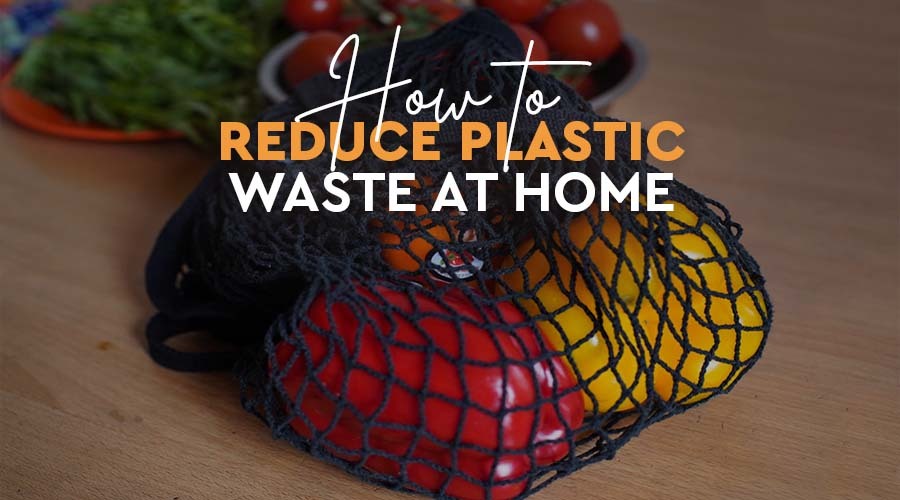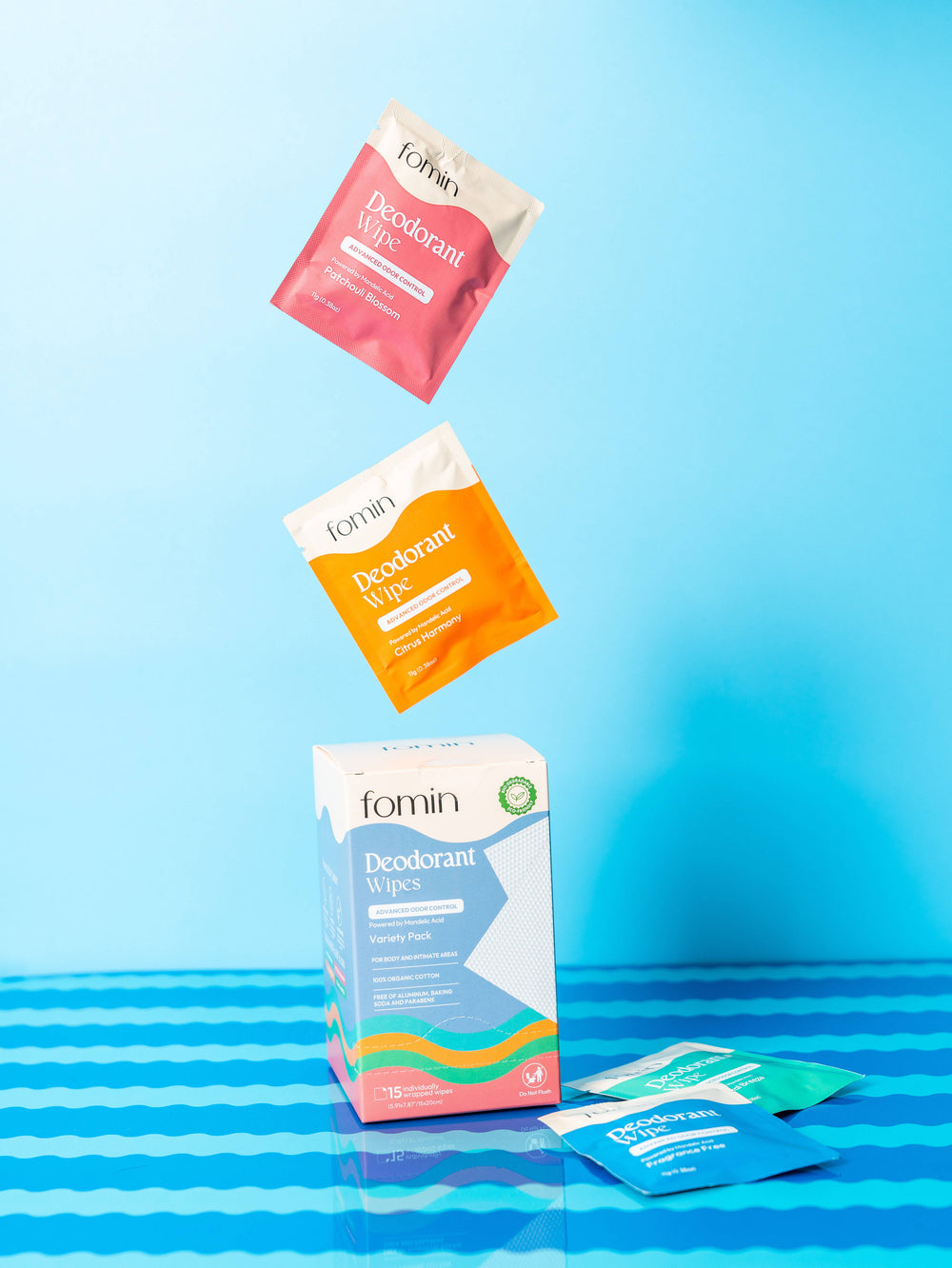
20 Practical Ways To Reduce Plastic Waste At Home
Share
Reducing plastic waste at home is not only good for the environment but also for our well-being. The scale of plastic pollution is staggering, with an estimated 75 to 199 million tons of plastic waste currently floating in our oceans. To make matters worse, an additional 33 billion pounds of plastic enter the marine environment every single year, perpetuating this ecological crisis.
However, there is hope, and change begins at home. In this blog post, we'll share 20 practical ways to help you reduce plastic waste in your daily life. These simple changes can have a big impact, from saving wildlife to reducing your carbon footprint.
Top 20 Ways for Reducing Plastic Waste at Home

Reducing plastic waste at home is a crucial step toward a more sustainable lifestyle. Plastic pollution is a global crisis, with millions of tons of plastic ending up in our oceans and landfills every year. To make a more significant impact, here are the top 20 ways to reduce plastic waste at home:
Reusable Shopping Bags
Invest in sturdy reusable shopping bags made of materials like canvas, jute, or woven polypropylene. Keep a few in your car or by your front door to ensure you never forget them when you head out to shop. Over time, this simple switch can prevent hundreds of single-use plastic bags from ending up in landfills and oceans.
Refillable Water Bottles
Purchase a high-quality reusable water bottle made of stainless steel, glass, or BPA-free plastic. Carry it with you throughout the day and refill it from your tap or a water fountain. Not only will this reduce plastic bottle waste, but it'll also save you money in the long run.
Say No to Plastic Straws
When ordering drinks, request "no straw" or use your reusable straw made of materials like stainless steel, bamboo, or silicone. Plastic straws are one of the most common items found in beach cleanups and pose a significant threat to marine life.
Use Glass or Stainless Steel Containers
Transition your kitchen to glass or stainless steel containers for storing food. They are durable, dishwasher-safe, and won't release harmful chemicals into your meals, unlike some plastic containers. Plus, they're perfect for reheating leftovers.
Cloth Produce Bags
When buying fruits and vegetables, use cloth produce bags instead of plastic ones provided at the store. These reusable bags are lightweight, breathable, and washable. They prevent unnecessary plastic waste and keep your produce fresh.
Reduce Packaged Foods
Select products with minimal packaging or opt for bulk items. Buy in bulk whenever possible and use your own reusable containers to store these items at home. This reduces the plastic waste associated with individually packaged products.
Choose Bar Soaps and Soap Sheets
Switch to bar soap and soap sheets, which come in minimal or no packaging. These products are often free of harmful chemicals and last longer than their liquid counterparts, making them a sustainable choice for personal care.
At Fomin, we offer soap sheets in a variety of delightful scents, including lemon, tea tree, jasmine, coconut, orange, lavender, and rose. Moreover, our innovative hand soap tablets enable you to effortlessly refill your glass container every time you run out, contributing to a cleaner and more sustainable home.
Ditch Disposable Razors
Invest in a durable safety razor with replaceable blades. While the initial cost may be higher, you'll save money in the long term by buying replacement blades instead of disposable razors encased in plastic. Safety razors also provide a superior shaving experience.
Homemade Cleaning Products
Make your cleaning products at home using simple, eco-friendly ingredients like vinegar, baking soda, and lemon juice. Store them in reusable glass bottles instead of buying commercial cleaners in plastic containers. Homemade cleaners are safer for your family and the environment.
Support Brands with Sustainable Packaging
When shopping for everyday products, choose brands that prioritize sustainable packaging. Look for products packaged in glass, cardboard, or other eco-friendly materials like PVA. This encourages companies to reduce their plastic use.
Keep Household Cleaners in Glass Bottles
Reduce plastic waste further by transferring your household cleaners into glass bottles. This simple switch not only minimizes plastic waste from cleaning product containers but also adds a touch of elegance to your cleaning routine.
Check our bathroom refill and multi-surface refills to complement your eco-friendly cleaning routine, reducing plastic waste while keeping your living spaces fresh and clean.
Switch to a Bamboo Toothbrush
Replace your plastic toothbrush with a bamboo toothbrush. Bamboo is a sustainable material that grows rapidly and can be harvested without harming the environment. Bamboo toothbrushes are also biodegradable.
Choose Beauty & Skin Care that Reduce Plastic Use
Opt for beauty and skincare products that come in recyclable or refillable packaging. Look for brands committed to reducing their plastic footprint.
Note: At Fomin, we're proud to provide eco-friendly alternatives that help you make a positive impact on the environment while maintaining your beauty and hygiene routines. Explore Fomin products now.
Buy Natural Baby Toys
When purchasing toys for infants, choose natural materials like wood or organic cotton instead of plastic toys. These options are safe and eco-friendly, reducing potential exposure to harmful chemicals for your baby.
Go Plastic-Free in the Garden
Avoid using plastic pots and containers in your garden. Opt for terracotta pots or other eco-friendly alternatives made from materials like recycled wood or biodegradable plant-based plastics. These choices can enhance the aesthetics of your garden while reducing plastic waste.
Quit Smoking
Smoking generates a significant amount of plastic waste from cigarette butts and packaging. Quitting smoking is not only beneficial for your health but also helps reduce plastic pollution. If you do smoke, consider using a reusable cigarette holder to minimize waste.
Use Dryer Balls
Instead of disposable dryer sheets, use wool dryer balls. These reusable balls can be added to your laundry to reduce static and help clothes dry faster. They are a cost-effective and eco-friendly alternative to single-use dryer sheets.
Compost Organic Waste
Set up a composting system for organic kitchen waste such as fruit and vegetable scraps, coffee grounds, and eggshells. Composting reduces the need for plastic trash bags and produces nutrient-rich compost that can enrich your garden soil.
Repair Instead of Replace
Extend the life of your belongings by repairing them instead of buying new ones, which often come with plastic packaging. Invest in tools and learn basic repair skills for items like clothing, appliances, and electronics.
Opt for Cloth Diapers
If you have a baby, consider using cloth diapers instead of disposable ones. Modern cloth diapers are easy to use, come in various styles, and are reusable. They not only reduce plastic waste but also save you money in the long term.
How Fomin Is Playing a Vital Role in Achieving a Plastic-Free World

At Fomin, our unwavering goal is to make a significant contribution to achieving a plastic-free world. With every purchase, you become a part of this global initiative, helping to save 12 ocean-bound plastic bottles from polluting our precious oceans. Our commitment to sustainability is reflected in our innovative product offerings, including Hand soap sheets, soap tablets, liquid soap refills, eco-friendly wipes, and eco-clean towels, all meticulously designed with one primary mission in mind: to save the world from the plastic crisis.
Together, we can protect our oceans, reduce plastic waste, and leave a cleaner, healthier planet for generations to come. Join us in our mission to save the world, one eco-conscious choice at a time.
Conclusion
By incorporating these 20 practical tips into your daily life and routines, you can significantly reduce your plastic waste at home. Each small change contributes to a cleaner environment and a healthier planet for future generations.

